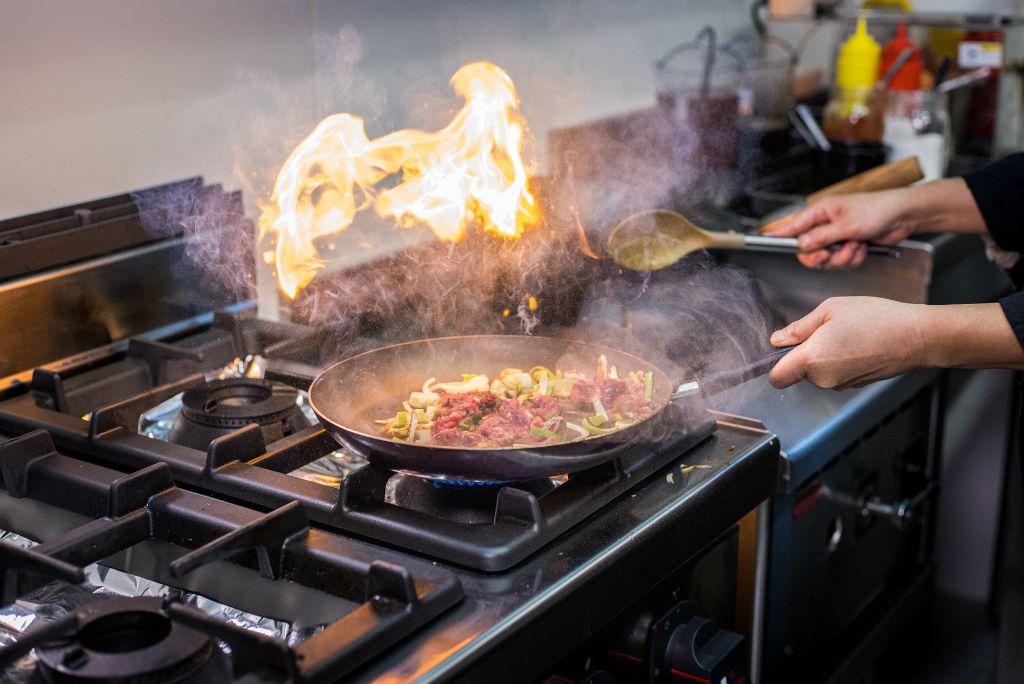Restaurant owners spend sums of money trying to increase business. Sometimes they do this directly by leafleting their menus through your door, most of which probably end up in the bin. Or, they sign up to agency and delivery websites like ‘Just Eat’ or ‘Deliveroo’ that promise increased business for a handsome share of the profits.
It is unsurprising that restaurant owners feel a constant need to attract new business because digital era has made everything so much more accessible and the eat-out and take-away business in the UK has become highly competitive. And, let’s be honest, once you found a place you like, you tend to repeat the experience while ignoring other options available to you.
But, if you were to tell restaurant owners that they could significantly increase business by adding just one word to their menu, do you think they would believe you? Chances are that they would dismiss you as self-proclaimed wizard and not give you a second thought. But, actually, it’s true.
That word is ‘Halal’.
Underserved
In the UK, Muslims constitutie over 5% of the UK population and that figure will inevitably grow. The Muslim community adheres to Islamic dietary laws, yet despite this, many non-Islamic restaurants have yet to fully cater to this social demographic, leaving the Islamic community feeling under-served due to the lack of Halal options in restaurants.
Expanding Halal offerings is not only a step toward inclusivity but also an opportunity for restaurants to tap into a sizable, loyal customer base.
What is Halal and why does it matter?
For Muslims, halal is more than a dietary preference—it's a religious obligation. Halal meat must be slaughtered in a specific way, ensuring that the animal’s welfare is considered.
Halal is deeply rooted in Islamic teachings, emphasizing humane treatment and cleanliness. When restaurants offer halal food, they acknowledge these values and cater to a religiously significant practice. It is not merely about meat but about the broader principles of faith that guide a Muslim's daily life. As such, including halal options can foster a more welcoming environment, signaling respect and understanding toward the diverse beliefs of the Islamic community.
Serving halal food signals a respect for these values, offering Muslims the chance to dine out while adhering to their faith. Restaurants that understand this cultural significance are better positioned to foster loyalty within the Muslim community, opening their doors to a wider audience.
____________________________________________________________________________
Must read: What is Halal?
___________________________________________________________________________
Increased profit potential
Inclusivity should be a strong enough motivator, but it also comes with increased profits. By not offering Halal meat, there is an entire population of customers that you are missing out on.
In other words, adding the word ‘Halal’ to your menu and highlighting the change will be like sending out an invitation to the entire Islamic community and their big families. It will be like saying “we value you and welcome you”, a message that they will receive kindly.
It is hard to imagine another word or marketing practice that could so easily increase your customer base.
Popular UK Restaurants Offering Halal Options
Over the past few years, several mainstream UK restaurants and chains have incorporated Halal meat into their menus to accommodate the growing demand, although these are often franchisees operated by Islamic owners, rather than every store in the entire chain.
Nonetheless, the trend is growing as we walk toward a more inclusive path. Below are some of the most popular UK chains that provide Halal options on their menus.
Nando's - Many locations across the UK serve halal chicken, ensuring that Muslims can enjoy their famed peri-peri dishes.
Pizza Express - All chicken used in Pizza Express dishes is halal, offering pizza lovers an inclusive dining experience.
Subway - Select outlets across the UK offer halal meat, giving Muslim diners access to a variety of halal subs.
KFC - Halal-certified branches of KFC provide chicken prepared according to halal standards.
Byron - A popular burger chain that offers halal meat at selected outlets to accommodate dietary requirements.
By integrating Halal options, these chains have increased their customer base and profits, but more than this, they have stepped up their game to be more socially inclusive.
Halal Origin’s mission
Halal Origins is on a mission to increase the number of restaurants that cater for Islamic customers. We firmly believe that by doing so, we will forge a closer relationship with our peers from different faith backgrounds, and this will lead to closer relationships with less divisions in our society.
We do not believe in ‘them and us’, just ‘us’ and that includes everyone, no matter their background. To make this dream part of our shared reality, we offer the finest organic Halal meat on a wholesale basis to restaurants and diners. We pray that by doing so, more restaurants will see the value in catering for the Islamic community.
Our wholesale meat is simply a gateway to a more inclusive society, so if you know any restaurants that are shy on Halal offerings, try recommending us to them, so we can patch the gaps one restaurant at a time.
Final thoughts
Offering Halal meat is a concrete step toward creating an inclusive society where people of all backgrounds feel accommodated. In a multicultural nation like the UK, restaurants that consider the diverse needs of their customers contribute to greater social cohesion. After all, inclusivity benefits everyone because communities grow stronger when people feel welcome and their dietary restrictions are respected.
Halal Origins is your advocate in this space because we believe you deserve better. We are on a mission to ensure that you are catered for wherever you go. Our wholesale meat service aims to bridge the gap that currently exists in our society by weaving the social fabric between Muslims and non-muslims.
We firmly believe that Halal meat is more than just a menu choice - it’s a way to celebrate diversity and respect cultural traditions, and you should be part of that celebration.

